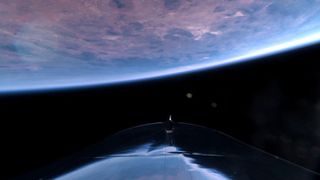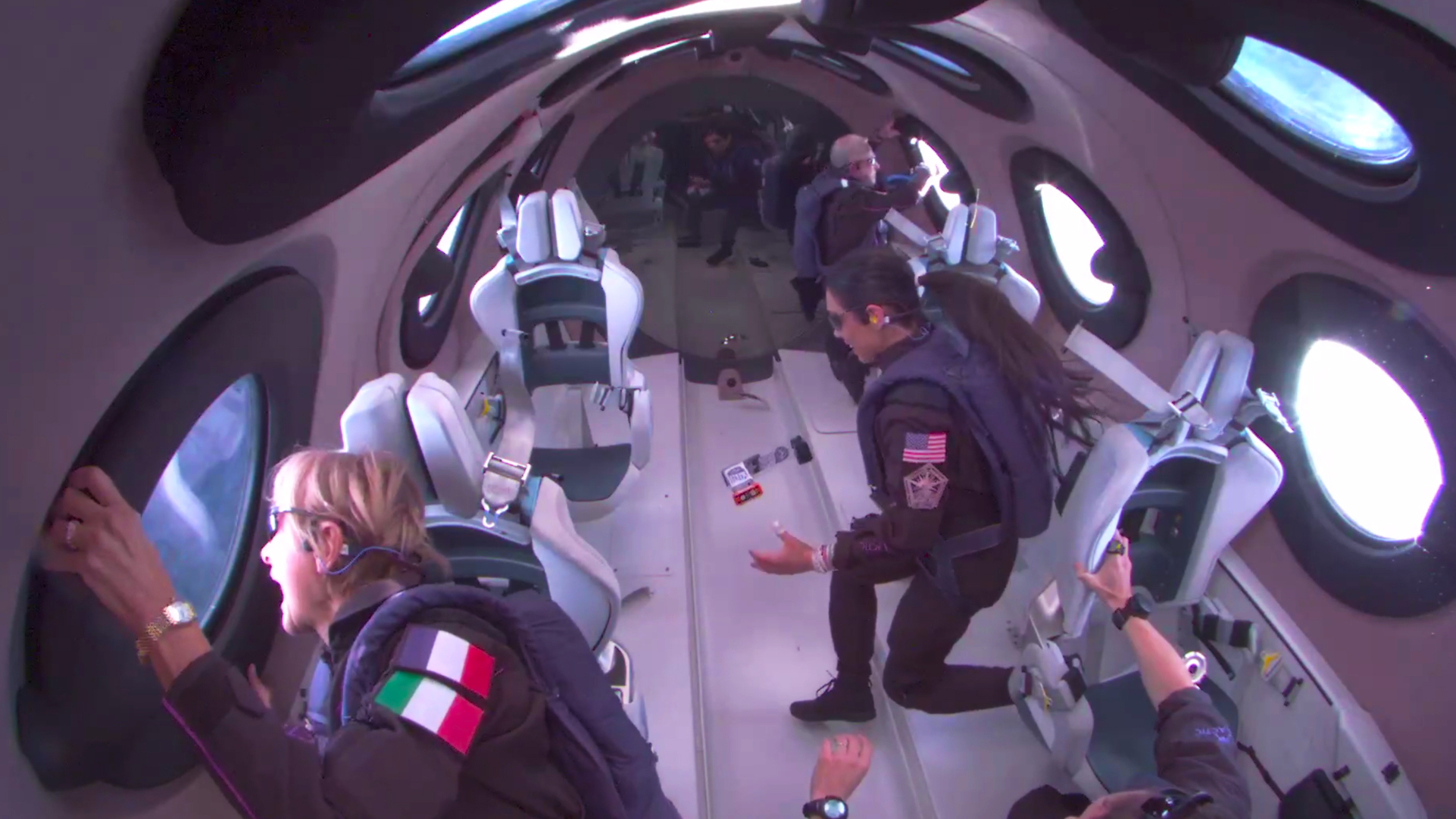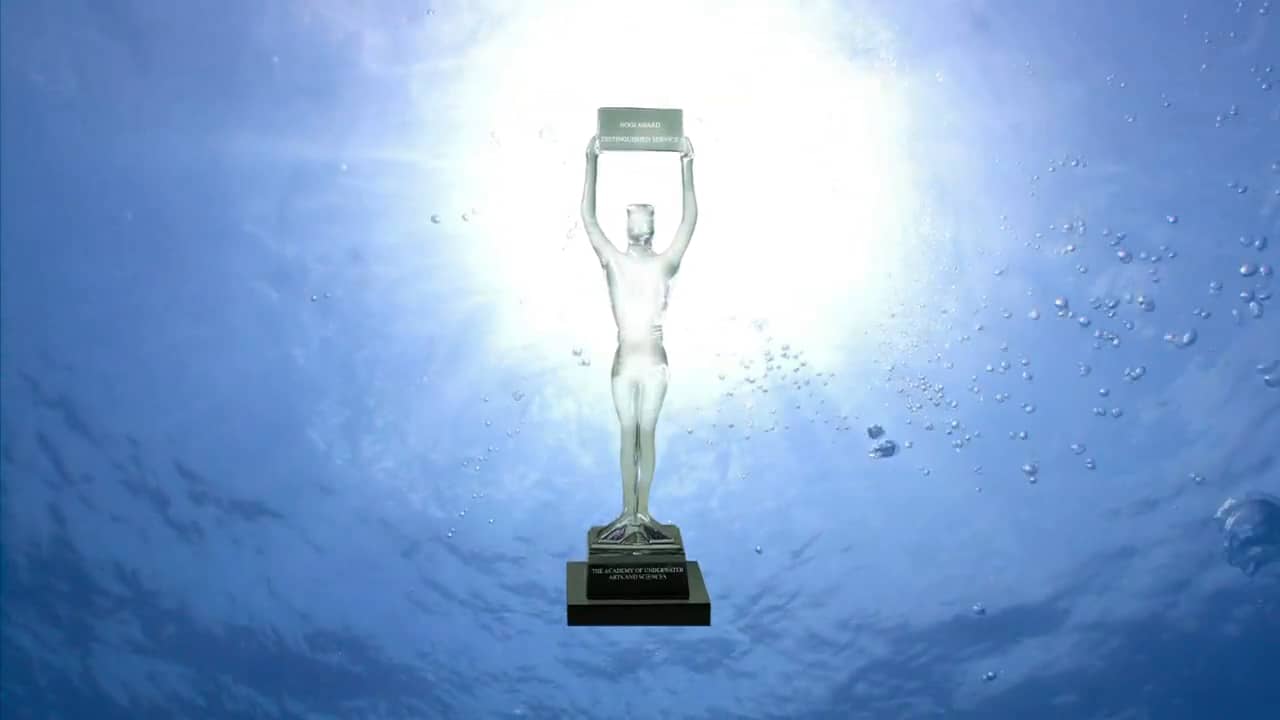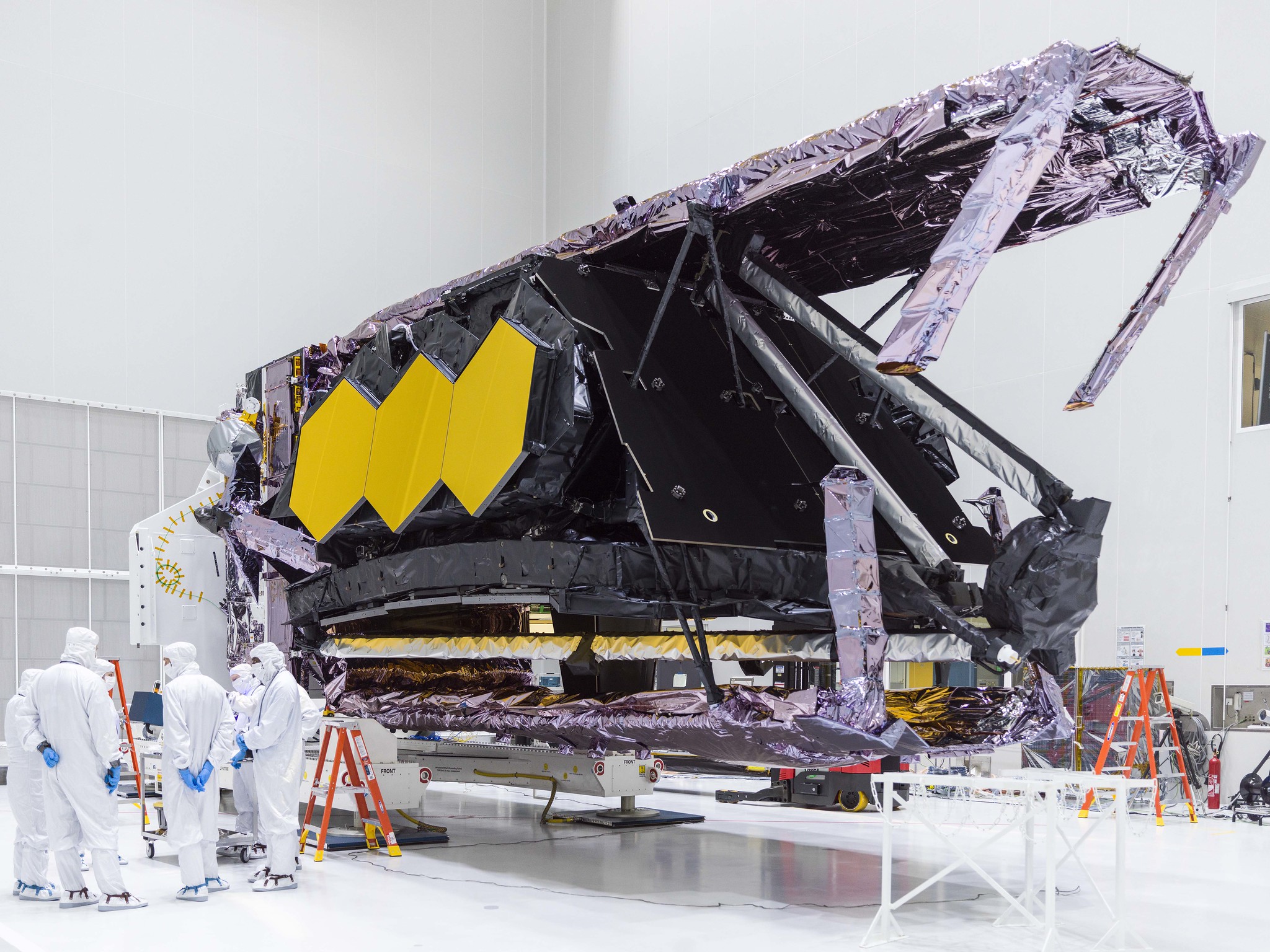
(Image credit: Virgin Galactic)
The impressive flight cadence of Virgin Galactic’s VSS Unity space plane won’t last much longer.
Unity flew for the sixth time in as many months last week, carrying two research scientists and another private passenger to and from suborbital space on a mission called Galactic 05.
Unity will now get a bit of a break, staying out of the skies until January 2024, Virgin Galactic representatives have said. The spacecraft will then make an even bigger transition, flying just once or twice more before being grounded in mid-2024, according to SpaceNews, which cited an earnings call the company held on Wednesday (Nov. 8).
Related: Meet the crew of Virgin Galactic’s 5th commercial spaceflight
The goal of the move is to free up resources for the “Delta class” space plane, the next-generation suborbital vehicle that Virgin Galactic is developing, company CEO Michael Colglazier said during Wednesday’s call, according to SpaceNews.
Each Delta craft will be capable of flying up to twice per week, Colglazier said. That’s an eight-fold cadence boost over Unity, which is designed to fly about once per month at most. In addition, each Delta vehicle can carry six paying customers per flight compared to four for Unity.
As a result, every Delta space plane will be able to generate 12 times more revenue per month than Unity can, Colglazier said, according to SpaceNews. (Virgin Galactic is currently charging $450,000 for each seat on its suborbital missions.) So speeding the transition to the new line of vehicles makes financial sense.
“Unity’s flight objectives are to demonstrate our system, showcase our astronaut experience and provide learnings for our Delta program,” he said during the call. “The total costs to support Unity’s flights surpass the relatively modest monthly revenues.”

Unity has been lifting off from Spaceport America in New Mexico, Virgin Galactic’s commercial hub. After the vehicle’s final flight next year, many company employees will be transferred from the site to a new factory in Phoenix, which will help build the Delta-class vehicles, SpaceNews reported.
Virgin Galactic aims to begin flight tests of the first Delta spacecraft in 2025 and to bring that vehicle into service in 2026, with others to follow over the ensuing months and years.
Unity’s transition isn’t the only move Virgin Galactic has made to spur Delta development. In a Tuesday (Nov. 7) filing with the U.S. Securities and Exchange Commission, the company announced that it will lay off about 185 people, which is roughly 18% of its workforce.
“The Company is taking this action to decrease its costs and strategically realign its resources,” the filing states. “This reduction will result in approximately $25 million in annualized cost savings.”
The Nov. 8 earnings call also announced Virgin Galactic’s financial results for the third quarter of 2023, which ended on Sept. 30. During the quarter, the company earned $1.7 million in revenue, roughly double the amount from the third quarter in 2022.
Virgin Galactic had a net loss of $105 million in third-quarter 2023, compared a net loss of $146 million during the same stretch a year earlier, according to a company statement.
Join our Space Forums to keep talking space on the latest missions, night sky and more! And if you have a news tip, correction or comment, let us know at: community@space.com.
Note: This article have been indexed to our site. We do not claim legitimacy, ownership or copyright of any of the content above. To see the article at original source Click Here













